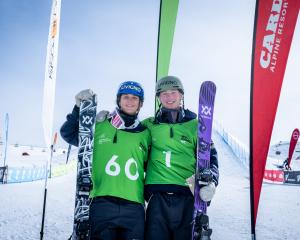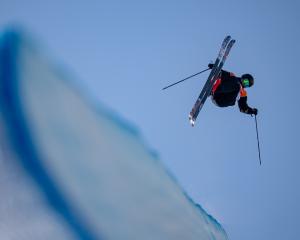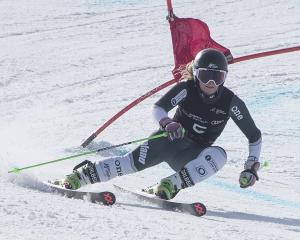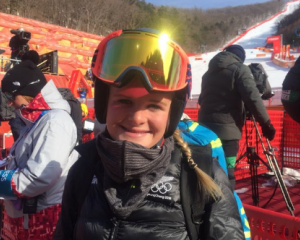The Otago Daily Times spoke to games chief executive Arthur Klap after the Winter Games NZ 2011 lunch for Queenstown Chamber of Commerce members last week.
"We have a $4 million budget that's primarily spent in the region," Mr Klap said.
"We don't have to pay anything offshore."
He said because the organisers were a charitable trust as opposed to a commercial operation, they had a policy of where they could, spending locally "so everything flows back into the community".
Speakers at the luncheon included Mr Klap, Jucy Rentals chief executive Tim Alpe and Michael Hill Jewellers chief executive Sir Michael Hill, who are both games patrons, and Winter Games NZ Trust chairman Eion Edgar. They talked about engaging communities both on and off the mountains.
Mr Klap said the winter festival trust had a 25-year vision of the games attracting 25,000 non-competing visitors to the South Island, but at the inaugural games in 2009, you could walk around Queenstown and Dunedin "and not know the games were on".
"We can never lose sight of the fact that it's a winter sport festival, but what we need to do is build something around it so ...there's things off the hill, or away from the stadiums that are of interest or are entertaining."
This year's programme will include festivals in Dunedin, Naseby, Queenstown, Wanaka and Methven.
"We will have things like an adventure film festival, music events, comedy festivals, sports events that are not snow-based, and downtown snow-based sports, such as a rail jam in the Octagon," Mr Klap said.
While organisers were being constantly contacted by groups in the community wanting to do something, he said they were mindful of not taking on too much.
"The beauty of the Winter Games is that you can add things next time around."
Mr Klap said other key elements of the 25-year plan were for the games to be recognised nationally as the premier event in the country, and to be financially self-sustainable as a regular event - "whether that is every two years or every one year".
One of the goals of the games was to be in a financial position where they could provide scholarships for local athletes, but that stage was "still a long way off".
It was on this financial point that the question of how often the games would run hinged, and he said the games could become an annual event.
"I wouldn't have said so two years ago, but now I think it could be ... We've got a plan of being financially self-sustainable in five events - 10 years - and when you're at that point, that's when you can make an assessment of whether it's annual, biennial and so on."











